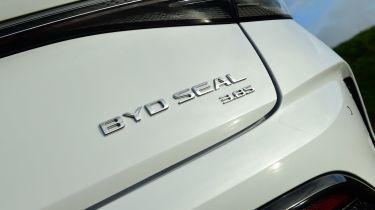BYD Seal - Reliability & safety
BYD is an unknown quantity in terms of customer satisfaction rankings; safety is impressive, though

With both the BYD Seal and the BYD brand being new to the UK market, we don’t have any data yet to include them in the latest 2024 Driver Power owner satisfaction survey, making it difficult to judge what long-term ownership is going to be like. On the positive side, the fit and finish of the BYD cars we’ve tested so far have been very good, and our service experience during our long-term ownership of a BYD Atto 3 hasn’t raised any cause for concern.
There may also be a period where dealership coverage isn’t quite as good as some of its more established competitors as the brand builds up its network. The same was true of MG and Tesla when those companies came to the UK, and that hasn’t prevented those brands from selling well in this country.
The Seal should be a safe car, because it was awarded a maximum five stars out of five by safety experts Euro NCAP in 2023. It matched the BMW i5 in adult occupancy rating, and did better in terms of child protection. It couldn’t match the Volkswagen ID.7, which did better across the board.
| Key standard safety features | Euro NCAP safety ratings |
|
Warranty
All Seal cars come with a six-year/93,750-mile warranty (it looks like an odd number, but it’s a conversion of the 150,000km figure applied to other markets).
Servicing
Electric cars don’t have the same servicing requirements as regular petrol or diesel cars because they don’t have an engine that requires regular oil changes. No specific service interval is listed; however, the owner’s manual for the BYD Seal lists numerous items that require checking every 12 months or 12,427 miles (a conversion of 20,000km), whichever comes first. Also, the manual suggests that the main battery needs to be fully charged and then discharged as part of a battery self-calibration procedure once every six months or every 44,739 miles (75,000km), whichever comes first.








